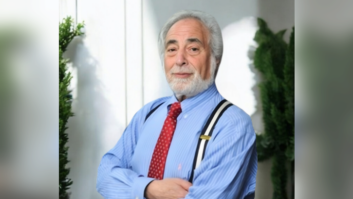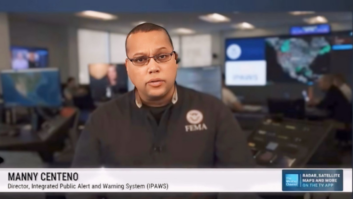The laundry list of current and former government officials advocating for the safeguarding of AM radio in electric vehicles continues to grow.
On Feb. 26, seven former leaders of the Federal Emergency Management Agency penned a letter to Secretary Pete Buttigieg of the Department of Transportation advocating for the preservation of the senior band and urging regulators to take action to protect the nation’s public safety.
“Because of the great distances that its signal carries, and due to its resiliency during even the worst natural disasters, the success of the National Public Warning System hinges on the use of AM radio,” the collective of former FEMA leaders wrote. “However, should EV makers continue removing AM radios from their vehicles, this vital public safety system will no longer function as intended.”
The dialogue between automakers and AM advocates has grown signficiantly in recent weeks. As we reported earlier, the Alliance for Automotive Innovation sent a reply to Sen. Ed Markey after he asked individual car companies about their commitment to broadcast AM radio in electric and other future vehicles. In the days following, Markey, the alliance, the National Association of Broadcasters and, now, FEMA officials and and an FCC commissioner have continued a public discourse.
On Monday, Feb. 27, FCC Commissioner Nathan Simington released his own statement highlighting AM radio’s continued importance for public safety and applauding the statement by FEMA leaders.
“As the FCC shares authority with FEMA for many aspects of our national emergency alerting systems, I underscore and affirm their concerns in the strongest possible terms,” said Simington in his own statement. “The issue of the continued inclusion of AM radios in electric vehicles deserves urgent attention.”
The former FEMA leaders said, “Some EV manufacturers have begun removing AM radios from their cars due to resolvable signal interference. Should this continue, it will represent a grave threat to future local, state and federal disaster response and relief efforts.”
Echoing them, Simington said, “As adoption of electric vehicles increases, we must not leave behind those in rural areas who depend upon radio for their news and alerts. While many in rural communities depend upon AM radio for information about emergencies, particularly alerts about weather, AM radio is important for more than just emergency information and alerting.
“AM radio informs and entertains tens of millions of listeners,” said Simington. “Broadcasters spend decades developing relationships with the local communities that they serve, and the trust engendered by those relationships pays dividends back through community-informed reporting. And, just like emergency alerting, an informed and engaged citizenry serves as an essential foundation for public safety.”
[Related: “Help Farm Radio Fight for Radio“]
While making no assurances that the AM band will remain as a feature in dashboards, the Alliance for Automotive Innovation said that it and its members are committed to maintaining consumer access to vital safety information.
“As part of this effort, we have been meeting with the National Association of Broadcasters (NAB) and are in the preliminary stages of engaging FEMA to understand better how consumers can continue to access emergency broadcast information both inside and outside the vehicle,” it wrote in its response to Sen. Markey.
However, in their letter to the Department of Transportation, the former FEMA officials said, “Reconciling electric motors’ response to broadcast reception is a small price to pay for protecting public safety, and it’s critical that the United States’ leading transportation policymaker make automakers aware of this fact. These companies benefited substantially from the many EV incentives passed within the Inflation Reduction Act, and we are calling on them to use just a small portion of these funds to protect the public interest.”
Simington also indicates in his most recent statements that open dialogue is not enough. He is calling on the FCC to “make clear the vital importance of AM radio.”
“The public safety community and the American public rely on AM radio,” he said. “Auto manufacturers now, and increasingly in the future will, rely on spectrum. Care should be taken to weigh the velocity of innovations against the stability of institutions. The commission can, and must, play a role in striking that balance.”







